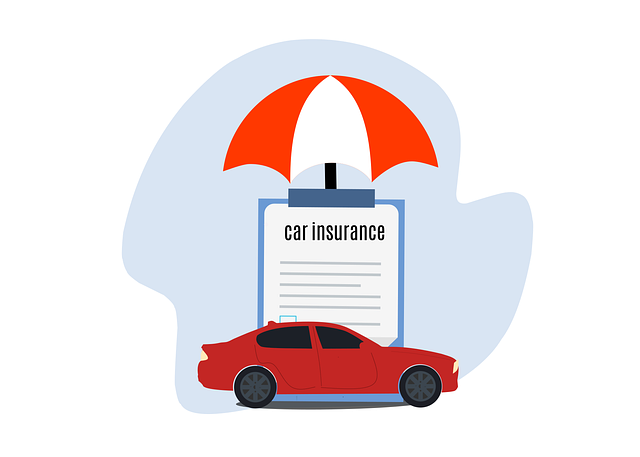Understanding temporary car insurance coverage options is crucial when renting cars for short periods. Policies range from basic liability (covering third-party damage and injuries) to full-coverage options (protecting both vehicle and personal belongings). Exclusions may include comprehensive, collision damages, property/personal injury liability, and specialized vehicles. To ensure adequate protection, research providers, compare policies, and consider special endorsements for gaps in coverage. Tailoring insurance options to specific rental needs ensures peace of mind while aligning with policy exclusions.
Looking to rent a car for a short period? Understanding insurance options is crucial before hitting the road. This guide navigates the complex world of temporary car insurance coverage, helping you make informed decisions. From recognizing your needs to choosing the right provider, we explore benefits, exclusions, and common mistakes to avoid. Discover how to maximize policy value and select from diverse Temporary Car Insurance Coverage Options tailored for short-term rentals. Ensure peace of mind on your next rental journey.
Understanding Short-Term Vehicle Rental Insurance Needs

When renting a vehicle for a short period, whether it’s for a few days or a week, understanding your insurance needs is crucial. Unlike long-term leases, temporary car rentals often come with different insurance requirements and coverage options. It’s essential to be aware of these to ensure you’re adequately protected during your rental period.
Many rental car companies offer various Temporary Car Insurance Coverage Options, including liability coverage, collision damage waivers, and personal accident insurance. However, the level of protection and what’s included can vary significantly between providers and rental durations. Therefore, it’s vital to read the fine print and comprehend the specifics of your chosen company’s policy before making a decision.
Types of Temporary Car Insurance Coverage

When considering insurance for short-term vehicle rentals, understanding the various coverage options is essential. Temporary car insurance coverage typically comes in different types, each catering to specific needs and offering varying levels of protection. The first option is liability-only coverage, which is the most basic form of protection. It usually includes compensation for any damage or injuries caused to others during an accident, but it does not cover the rental car itself or personal belongings.
Next, there’s full-coverage insurance, also known as collision and comprehensive insurance. Unlike liability-only, this option protects both the rental vehicle and your personal assets in case of damages or theft. It covers a wide range of incidents, including accidents, natural disasters, and vandalism. Some policies might also include additional perks like roadside assistance, which can be invaluable when renting for short periods. The specific features and limitations vary between providers, so it’s crucial to compare temporary car insurance coverage options before making a decision.
Benefits of Insuring Short-Term Rentals

Insuring short-term vehicle rentals offers several significant advantages, especially for those who aren’t tied to a single car or need temporary coverage. Firstly, it provides temporary car insurance coverage options tailored to your specific needs, ensuring you’re protected during unforeseen circumstances like road trips or while your primary vehicle is in repair. Unlike long-term policies, these plans are flexible and can be adjusted based on the duration of your rental, offering cost savings where possible.
Additionally, short-term insurance can offer comprehensive protection for your rented vehicle, including liability, collision, and theft coverage. This shield against potential financial burdens is particularly valuable when renting from private individuals or untrusted sources. It also provides peace of mind, knowing that you’re not solely responsible for any damages or accidents that may occur during your rental period.
Key Exclusions to Be Aware Of

When considering temporary car insurance for short-term rentals, it’s crucial to understand the key exclusions to avoid unexpected coverage gaps. While these policies offer convenient and affordable solutions for those needing a vehicle for a few days or weeks, they often come with certain limitations. Common exclusions include coverage for comprehensive and collision damages, which typically require separate policies. This means that if your rented vehicle suffers significant damage or is stolen, you might not be covered under the basic temporary insurance plan.
Another exclusion to watch out for is liability coverage in case of accidents causing property damage or personal injury to others. Short-term rental policies usually limit their liability, leaving you responsible for potential high costs. Additionally, temporary car insurance often excludes coverage for specialized vehicles like race cars, classic cars, or recreational vehicles. It’s essential to review the policy details carefully and consider adding optional endorsements or separate policies to address these exclusions, ensuring comprehensive protection during your short-term rental period.
Choosing the Right Provider for Your Needs

When considering insurance for short-term vehicle rentals, it’s crucial to choose a provider that aligns with your specific needs. Different companies offer various Temporary Car Insurance Coverage Options, from basic liability to more comprehensive plans including damage waiver and personal effects protection. Assess your requirements based on rental duration, vehicle type, and intended use.
Researching and comparing providers is key. Look into their policies, customer reviews, and what’s included in each plan. Some companies specialize in short-term rentals, ensuring a tailored experience. Consider the reputation, financial stability, and availability of 24/7 support to ensure peace of mind during your rental period.
How to Maximize Your Policy Value

When considering temporary car insurance for short-term rentals, maximizing your policy value involves understanding and choosing the right coverage options tailored to your needs. Start by evaluating the type of rental – whether personal use, business, or a special event – as this influences required liability limits. Opting for higher deductibles can lower premiums significantly, but ensure you’re comfortable with the out-of-pocket expense in case of an accident.
Additionally, consider optional add-ons like collision and comprehensive coverage for added protection against damage or theft. Temporary car insurance policies often exclude certain high-risk activities; ensure your chosen options align with your rental plans to avoid gaps in coverage. Remember to read the policy details carefully to maximize your temporary car insurance’s value and peace of mind while on the road.
Common Mistakes to Avoid When Renting Temporarily

When renting a vehicle for short-term use, many individuals overlook the importance of adequate insurance coverage, often leading to costly mistakes. One common error is assuming that their personal auto insurance policy will suffice during temporary rentals. However, standard policies typically exclude rental cars, leaving renters vulnerable to significant financial burdens in case of accidents or damage. It’s essential to understand that short-term vehicle insurance options are designed to bridge this gap and provide specialized coverage tailored for rented vehicles.
Another mistake to avoid is not comparing different Temporary Car Insurance Coverage Options available. Each rental agency may offer various levels of protection, from liability-only plans to comprehensive policies that include theft and damage waivers. Renters should carefully review these options, considering their specific needs and budget. Opting for the right insurance can save you from unexpected expenses and ensure a smoother rental experience.
